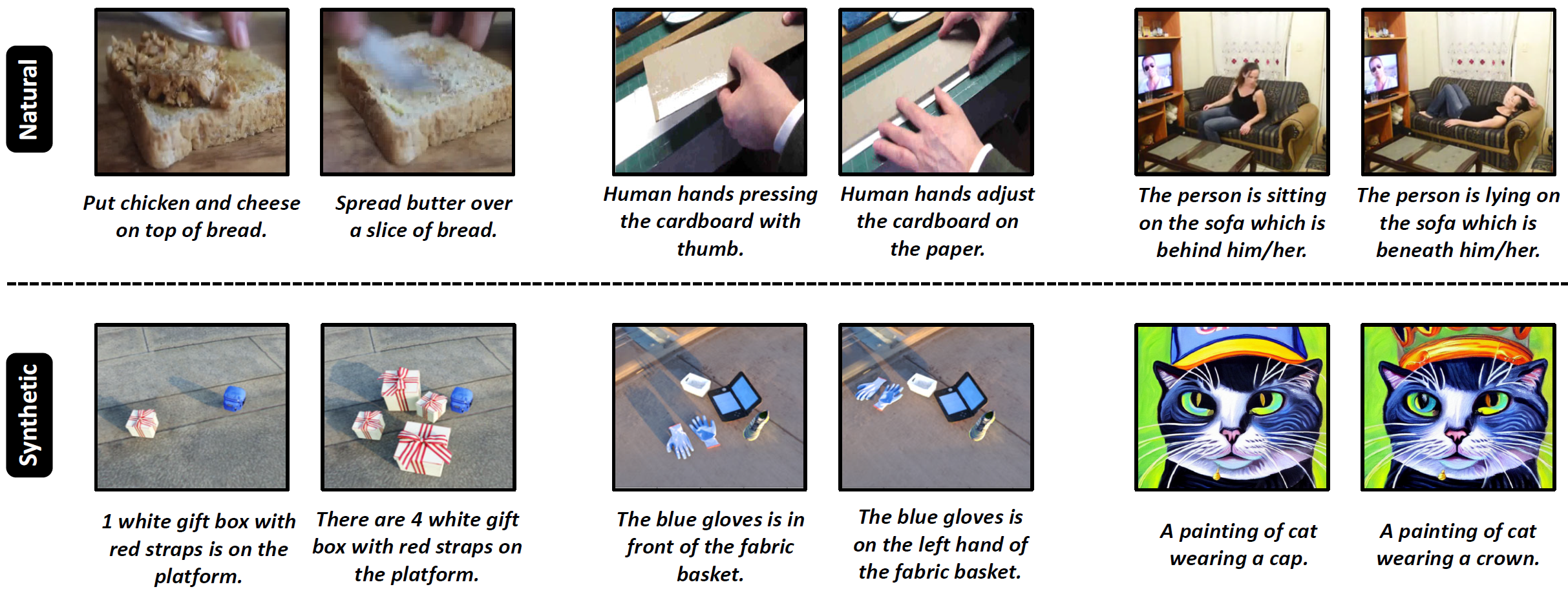Equivariant Similarity for Vision-Language Foundation Models
This study explores the concept of equivariance in vision-language foundation models (VLMs), focusing specifically on the multimodal similarity function that is not only the major training objective but also the core delivery to support downstream tasks. Unlike the existing image-text similarity objective which only categorizes matched pairs as similar and unmatched pairs as dissimilar, equivariance also requires similarity to vary faithfully according to the semantic changes. This allows VLMs to generalize better to nuanced and unseen multimodal compositions. However, modeling equivariance is challenging as the ground truth of semantic change is difficult to collect. For example, given an image-text pair about a dog, it is unclear to what extent the similarity changes when the pixel is changed from dog to cat? To this end, we propose EqSim, a regularization loss that can be efficiently calculated from any two matched training pairs and easily pluggable into existing image-text retrieval fine-tuning. Meanwhile, to further diagnose the equivariance of VLMs, we present a new challenging benchmark EqBen. Compared to the existing evaluation sets, EqBen is the first to focus on "visual-minimal change". Extensive experiments show the lack of equivariance in current VLMs and validate the effectiveness of EqSim. Code is available at https://github.com/Wangt-CN/EqBen.
PDF Abstract ICCV 2023 PDF ICCV 2023 Abstract



 MS COCO
MS COCO
 YouCook2
YouCook2
 LAION-400M
LAION-400M
 Kubric
Kubric
 VALSE
VALSE
 ImageCoDe
ImageCoDe
